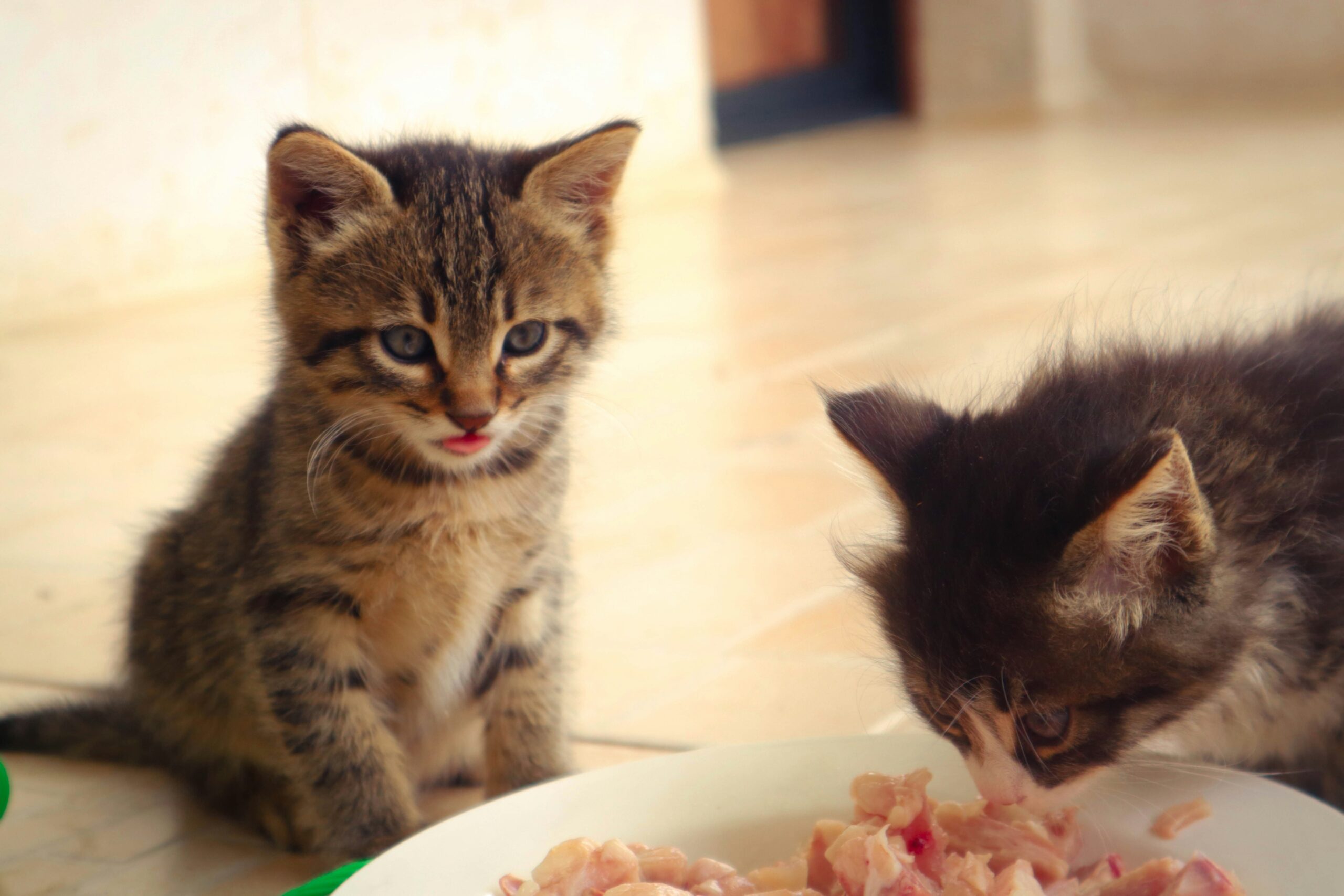

Your new kitten should be busy exploring, pouncing, and purring—but if they’re ignoring their food bowl, it’s natural to worry. Here’s what’s normal, what’s not, and how to help (with a little help from Lemonade’s favorite vet, Dr. Stephanie Liff).
Common causes of kittens not eating
They’re not feeling well
According to Dr. Liff, kittens usually don’t skip meals for no reason:
It’s almost always indicative of illness. They’ll eat to survive—so if they’re not eating, they’re typically ill, or will get ill very quickly.
Dr. Stephanie Liff
Common culprits include fever, intestinal parasites, viruses, or even something as simple as an upset stomach from eating something they shouldn’t have.
The environment changed
Moving to a new home, loud noises, travel, or even a new pet can throw your new kitten off. Think of it like kitten culture shock. New home, new smells, maybe a big dog staring at their food bowl. It’s a lot. A quiet corner might be all they need.
They don’t like the food
Your kitten might be picky! If they’re turning their nose up at a certain type of cat food, try experimenting with different textures or flavors. Wet food, canned food, or warming up their meal a little can make a big difference.
It’s a feeding access issue
If another cat is guarding the bowl or the food is too far from their safe space, your kitten might not feel comfortable eating.
If there’s a threat in the home—like another cat—they might skip meals to avoid confrontation.
Dr. Stephanie Liff
They’re adjusting to solid food
Switching from milk to meals isn’t always a smooth ride—some kittens need a bit of encouragement and a lot of mush.
How you can help support your kitten eating
With a few simple tweaks and a bit of patience, you can make mealtime more appealing and comfortable for your kitten.
- Try different textures and flavors: Kittens often prefer soft, smelly options like wet food or canned food. You can also warm up their meal slightly to boost aroma and appeal.
- Make the food accessible: Place the food bowl in a quiet, comfortable area where your kitten feels safe. If you suspect another pet is bothering them, consider feeding them in a separate space.
- Stick to a feeding schedule: A consistent mealtime can help your kitten build healthy eating habits. Offer food at the same times each day and remove uneaten food after 15 to 20 minutes.
- Keep everything clean: A dirty food bowl or stale dry cat food could turn your kitten off. Clean bowls with mild soap and rinse well. And always provide fresh water in a clean water bowl nearby.
- Avoid puzzle feeders for now: While puzzle toys can be great for adult cats, Dr. Liff warns that “with kittens, they might not be able to figure out puzzle feeders and could end up eating less.” Stick with easy-to-access bowls until they’re older.
When to call your vet about your kitten not eating
If your kitten suddenly stops eating or shows other warning signs, it’s important to act quickly. Young kittens can get sick fast, so knowing when to reach out to your vet can make all the difference.
If your kitten hasn’t eaten in 12 to 24 hours—or shows signs like vomiting, diarrhea, lethargy, or changes in litter box habits—don’t wait to call the vet. Kittens can develop hypoglycemia or dehydration quickly, especially if they’re very young.
A sudden change in eating is a medical emergency in a kitten. They need to eat every few hours to stay healthy.
Dr. Stephanie Liff
Your vet can check for common health issues like constipation, intestinal parasites, or upper respiratory infections—and may suggest appetite stimulants if needed.
Before we go…
Watching your kitten refuse food can be nerve-wracking—but with a little troubleshooting and support, most kittens bounce back quickly.
If your kitten needs medical attention, having Lemonade Pet means you’re covered for unexpected stuff—like this. So your focus can stay where it should: helping your tiny floof bounce back.
A few quick words, because we <3 our lawyers: This post is general in nature, and any statement in it doesn’t alter the terms, conditions, exclusions, or limitations of policies issued by Lemonade, which differ according to your state of residence. You’re encouraged to discuss your specific circumstances with your own professional advisors. The purpose of this post is merely to provide you with info and insights you can use to make such discussions more productive! Naturally, all comments by, or references to, third parties represent their own views, and Lemonade assumes no responsibility for them. Coverage and discounts may not be available in all states.



